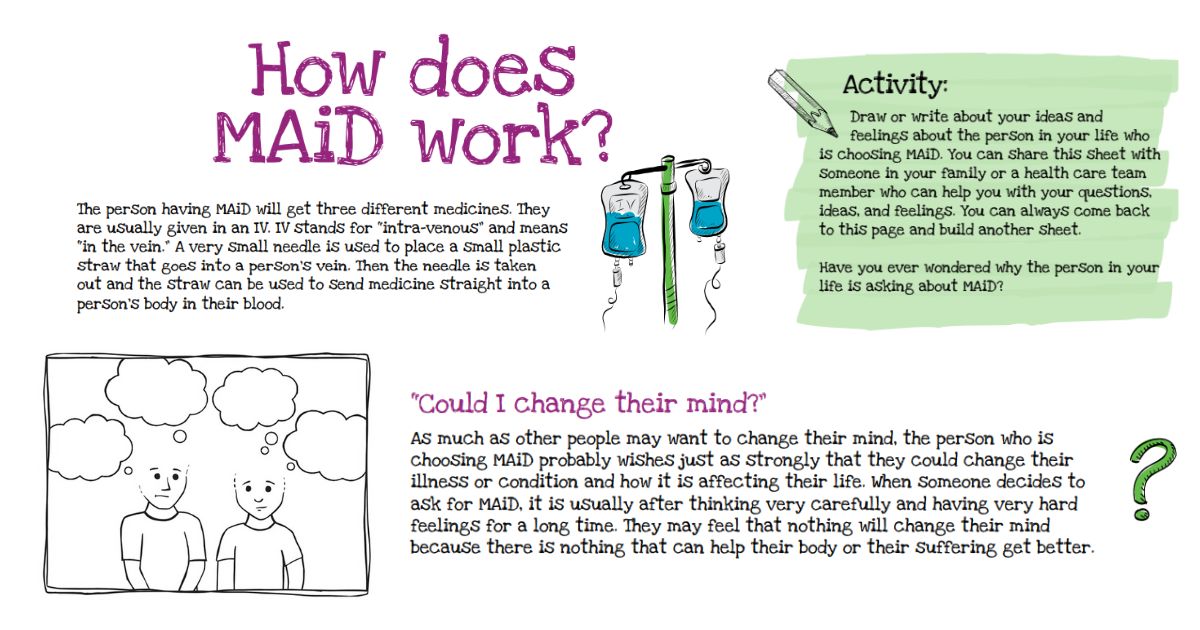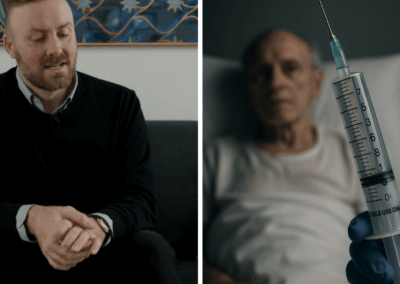The Canadian government has funded the creation of an assisted suicide and euthanasia activity book for children.
The activity book for children, ‘Medical Assistance in Dying (MAID) Activity Book’, is not intended for children seeking to end their lives by euthanasia or assisted suicide, which, for the time being, is illegal in Canada. Rather, the book is intended for children who might be present at the death of a loved one who is ending their own life by assisted suicide or euthanasia.
Canadian Virtual Hospice, the group behind the 26-page booklet, declared it was “Created for young people who have someone in their life who may have MAID.”
Three medicines to end your life
Written by Ceilidh Eaton Russell, a McMaster University lecturer and a consultant on grief in children, the booklet describes euthanasia as a final option for adults with a disability or illness that “hurts their body or their mind so much that it feels too hard to keep living”.
It describes the taking of “three medicines” which, in turn, make the person wishing to die “fall asleep”, fall into a coma, and make the person’s “lungs stop beating and… their heart [stop] beating”. The booklet emphasises that “it does not hurt”.
The booklet also urges children not to attempt to change the decision of the person who intends to end their own life. It reads “As much as other people may want to change their mind, the person who is choosing MAID probably wishes just as strongly that they could change their illness or condition and how it is affecting their life”.
Canada’s euthanasia regime has come under particular attention in recent months after at least five Canadian veterans were offered assisted suicide or euthanasia instead of treatment.
Next year, the law on euthanasia is set to be expanded to allow people to be euthanised on the basis of mental illness.
No outside scrutiny
Last year, the Director of the Disability Studies programme at the University of Manitoba, Nancy Hansen, commented on the lack of legal oversight for doctors committing euthanasia saying that “there’s no consequences for non-compliance” with the law.
As The New Atlantis explains, part of the difficulty with legal enforcement is that those performing euthanasia are the same people training others in the euthanasia process and assessing each other. There is almost no outside scrutiny.
One in five cite loneliness as a reason to want to die
In 2021, 10,064 people ended their lives by assisted suicide and euthanasia, an increase of over 32% from the previous year, accounting for 3.3% of all deaths in Canada.
According to the latest report on Medical Assistance in Dying from Health Canada, 17.3% of people also cited “isolation or loneliness” as a reason for wanting to die. In 35.7% of cases, patients believed that they were a “burden on family, friends or caregivers”.
Statistics from the state of Oregon, which made assisted suicide legal in 1997, show that most end-of-life concerns are not medical. The Oregon Health Authority report for 2021 says that 54.2% of patients were concerned with being a “burden on family, friends/caregivers”. 92% of patients were concerned with being “[l]ess able to engage in activities making life enjoyable”. 93.3% were concerned with “losing autonomy” and 68.1% were concerned with “loss of dignity”. Of the total who have died since 1997, 27.5% have listed “inadequate pain control, or concern about it” as one of their end-of-life concerns.
Right To Life UK spokesperson Catherine Robinson said: “ Not only does this booklet attempt to indoctrinate children into thinking that assisted suicide is just one more medical option in life, but it even implies that they should not attempt to persuade their loved one not to kill him or herself”.












